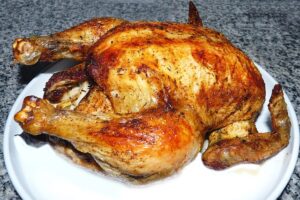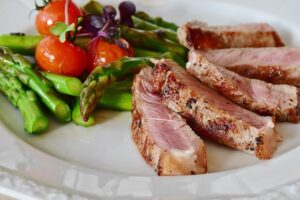Introduction
When it comes to consuming turkey, many people are interested in knowing how much protein is in a pound of this popular poultry. Protein is an essential macronutrient that plays a crucial role in building and repairing tissues, supporting immune function, and maintaining overall health. In this article, we will explore the protein content in a pound of turkey and its nutritional significance.
Protein Content in Turkey
Turkey is a lean source of protein, making it an excellent choice for individuals looking to increase their protein intake without consuming excessive amounts of fat. The exact protein content in a pound of turkey can vary depending on various factors such as the cut of meat and cooking method. On average, a pound of cooked turkey provides approximately 112 grams of protein.
Protein Quality in Turkey
Not only does turkey offer a significant amount of protein, but it is also considered a high-quality protein source. High-quality proteins, also known as complete proteins, contain all the essential amino acids that the body needs for various physiological functions. These amino acids cannot be synthesized by the body and must be obtained through diet. Turkey contains all nine essential amino acids, making it a valuable protein source for muscle growth, repair, and overall health.
Benefits of Protein in Turkey
Consuming an adequate amount of protein is essential for various reasons. Here are some of the benefits associated with including turkey protein in your diet:
Muscle Growth and Repair: Protein is crucial for muscle growth and repair. It provides the necessary amino acids to support muscle protein synthesis, which helps build and maintain lean muscle mass.
Satiety and Weight Management: Protein is known to be more satiating than carbohydrates or fats. Including protein-rich foods like turkey in your meals can help you feel fuller for longer, potentially reducing overall calorie intake and supporting weight management efforts.
Immune Function: Protein plays a vital role in supporting immune function. It helps produce antibodies and immune cells, which are essential for fighting off infections and diseases.
Healthy Hair, Skin, and Nails: Protein is a building block for various tissues, including hair, skin, and nails. Consuming adequate protein from sources like turkey can contribute to healthy hair, skin, and nails.
Other Nutritional Considerations
While turkey is an excellent source of protein, it is also important to consider other nutritional aspects. Turkey is relatively low in fat, particularly if you choose lean cuts like turkey breast. However, the skin of the turkey is higher in fat content, so it’s advisable to remove it before consumption if you are watching your fat intake.
Additionally, turkey is a good source of vitamins and minerals such as vitamin B6, niacin, selenium, and zinc. These nutrients play various roles in supporting overall health and well-being.
Conclusion
A pound of cooked turkey provides approximately 112 grams of protein, making it a valuable source of high-quality protein. Including turkey in your diet can help support muscle growth and repair, promote satiety and weight management, boost immune function, and contribute to healthy hair, skin, and nails. Remember to consider other nutritional aspects and choose lean cuts of turkey for a healthier option.
References
– USDA FoodData Central: fdc.nal.usda.gov
– Healthline: healthline.com
– Medical News Today: medicalnewstoday.com













